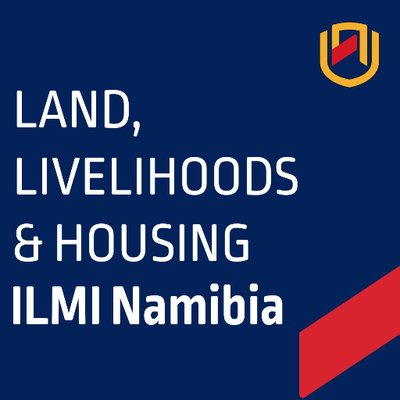Location
The Integrated Land Management Institute is a centre of the Faculty of Natural Resources and Spatial Sciences (FNRSS) at the Namibia University of Science and Technology (NUST) committed to develop reputable and multidisciplinary research and public outreach activities in the field of land, administration, property, architecture and spatial planning.
It was originally established 2006 and conceived as an arm of the Department of Land Management in order to undertake applied research, consulting services, and training courses.
As from 2015, activities at ILMI will be guided by the Land, Livelihoods and Housing programme, while remaining open to new collaborative research, training, and outreach activities.
ILMI has a space at the Department of Land and Property Sciences (DLPS) and most events currently take place at the Seminar Room of the Department of Architecture and Spatial Planning (DASP). Smaller events and meetings take place at the CLPS House.
The Department of Land and Property Sciences (DLPS) has recently been recognised by the African Union (AU) through the Land Policy Institute (LPI) as a Centre for Excellence in Land Governance for Africa (NUST - NELGA Hub).
Members:
Resources
Displaying 21 - 25 of 2625 years of land reform
The Land, Livelihoods and Housing Programme aims at deepening and expanding the focus on these three key issues in Namibia. This thematic approach seeks to reflect the wide-ranging skills exiting at the FNRSS, and was developed to guide ILMI’s activities during the 2014-18 period. The programme is organised in four aspects: institutional, environmental, fiscal and spatial processes.
25 years of land reform (ILMI Working paper No. 1).
This Working Paper, the first in the series to be published by ILMI, will briefly review progress in both land reform sectors and raise a few issues that continue to pose challenges to the programme.
The new flexible land tenure act: An update [ILMI Document No. 2/2015].
ILMI Brown bag meeting on Thursday 29th October 2015, 12h30-14h00.
The proposed new urban and regional planning bill.
ILMI Brown bag meeting, Thursday 15th October 2015, 12h30-14h00.
The new Flexible Land Tenure Act: an update.
The Flexible Land Tenure (FLT) system was developed by the Ministry of Lands and Resettlement and the discussions started in the period of 1992-1998. It was conceived as an alternative for the land tenure catering for low income groups. The act passed in 2012, and currently the regulations are being revised for approval.



